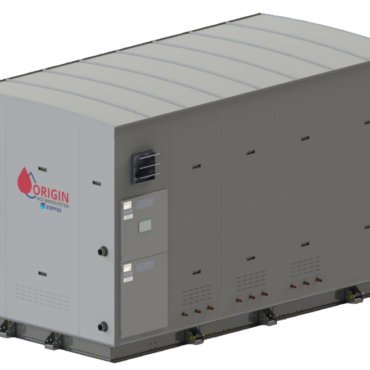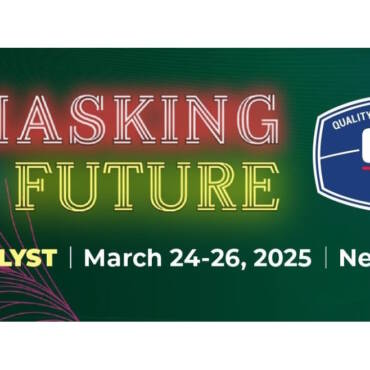The results are in, and Donald Trump will be our 45th and 47th president.
To be honest, I was not expecting to write this column so quickly. I was under the assumption that it would take days, if not weeks, for us to get the results. And while we don’t quite know the final results in the House of Representatives, as many races are close enough to trigger a recount, we know for sure that the Republicans have control of the presidency and Senate.
What does this mean for the HVAC industry? More specifically, the HVAC tax credits and incentives? A lot of folks in the industry have been talking about this in the days leading up to the election. Now we can talk about it from a more educated place.
Let’s start with the facts. The Inflation Reduction Act (IRA), which became law in 2022, earmarked $369 billion for energy security and combating climate change, including by offering incentives for efficient and electric HVAC equipment. No Republican in the House or Senate voted for it, and no Democrat voted against it. Vice President Kamala Harris cast the tie-breaking vote in the Senate for the IRA.
Tax credits in the bill cover up to 30% off the cost of installing qualifying high-efficiency residential HVAC equipment and are available on a national level. The heat pump incentives act as rebates and are designed for low- to moderate-income homeowners. These are currently being rolled out by the states, which receive the money from the federal government. The rebates can be as high as $14,000.
During the campaign, Trump said he would rescind any unspent IRA funds if elected. The president-elect would often talk up fossil fuels and nuclear energy, most notably with the phrase “drill baby drill.”
Obviously, what politicians say to get elected and what they do when in power are oftentimes two different things. They might just be saying these opinions to get elected — or, after they get to Washington, they find out it is easier said than done.
But let’s take Trump at his word and assume he wants to repeal at least parts of the IRA.
As of this week, nine states and the District of Columbia have some type of rebate program up and running. Another nine have had their applications approved. This is where is becomes interesting, because once the states have been approved and given the funds, it is a lot harder to get the toothpaste back in the tube.
It is important to point out the Biden administration still has over two months to remain in power. The U.S. Department of Energy and the other 31 states (South Dakota decided not to participate) could fast-track this process. Currently, it has taken states around 90 days to get approved.
Even if a state has not been approved yet, it will be hard to claw back the money because a lot of it has already been obligated. That means it is with the Department of Energy and out of Congress’ control.
But does Congress even want to? It would take an act of Congress to repeal all or even part of the IRA. This is where Trump could hit a bump in the road. It will be tougher this time around to prevent Senate and House Republicans from making that vote.
This is because it has been two years since the IRA was passed, and a lot of investments have been made. Companies have made business plans and investments based on these tax incentives and credits being available — not just in the HVAC world, but also the other industries that were impacted by the IRA.
Most of the businesses that would be affected by any change reside in red states — the very people that just swung the election in favor of Trump. In fact, last summer a total of 18 Republican members of Congress sent a letter to House Speaker Mike Johnson asking him not to do anything with the clean energy tax credits offered by the IRA. That is the kind of pressure the incoming president should expect from some in his own party, not that Trump is one to back down from a fight.
Republicans would not be doing this because of climate change, but rather with jobs in mind.
It is a lot easier to say you will repeal something on the campaign trail than actually doing it when you get into the White House. Just look at Trump’s first term and the Affordable Care Act. With a slim majority in the Senate and a to-be-determined House of Representatives, it will be tough sledding to get rid of these incentives.
But that does not mean the decarbonization trend is secure. There is a lot the administration can do going forward that does not involve money that has already been obligated.
I am talking specifically about the tax code, which will undoubtedly be one of the top items on Trump’s things-to-do list. Some of the Trump tax cuts that were passed in 2017 are set to expire next year. Republicans likely will want to spend some political capital on extending those.
This is where they could change tax credits that companies receive for the production of green products. It would not be a stretch for the new tax code to be more positive for fossil fuels.
At the end of the day, the election results this week will probably slow the decarbonization and electrification trend, instead of stopping it. The HVAC industry is divided on whether the trend is good for business, so they likely will be divided on this news as well.
Whether you require installation, repair, or maintenance, our technicians will assist you with top-quality service at any time of the day or night. Take comfort in knowing your indoor air quality is the best it can be with MOE heating & cooling services Ontario's solution for heating, air conditioning, and ventilation that’s cooler than the rest.
Contact us to schedule a visit. Our qualified team of technicians, are always ready to help you and guide you for heating and cooling issues. Weather you want to replace an old furnace or install a brand new air conditioner, we are here to help you. Our main office is at Kitchener but we can service most of Ontario's cities
Source link



